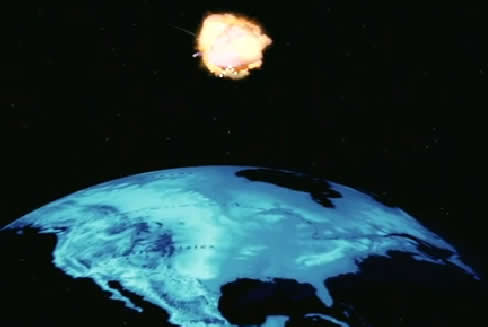DHS Admits It Is Unprepared for EMP Threat
Steven Ballew /
In testimony delivered on September 12, Brandon Wales, director of the Department of Homeland Security’s (DHS) Infrastructure Threat and Risk Analysis Center, admitted that DHS remains unprepared for the possibility of an electromagnetic pulse (EMP) event or attack.
Wales testified that the nation’s power grid is more vulnerable now than it was a few years ago. Nevertheless, he could not provide Congress with an estimate for how much it would cost to combat such vulnerabilities.
An EMP attack could bring this country to a screeching halt by permanently disabling electronic devices. ATMs would stop dispensing money. Water and sewage systems would fail. Even planes and automobiles would stop working. Imagine living in the Dark Ages: This is what it would be like to live through an EMP attack.
More than seven years ago, DHS released its National Planning Scenarios. This document outlined plans to prepare for and respond to 15 different man-made and natural disasters. The list included the detonation of an improvised nuclear device and the use of a plague as a weapon. However, one potential threat was noticeably missing; an EMP event or attack.
The possibility of an EMP is arguably just as likely to occur as the detonation of an improvised nuclear device or the use of a contagious and deadly biological weapon. A rouge nation could effectively disable, damage, or destroy critical infrastructure with a short-range ballistic missile carrying an EMP device or nuclear warhead. Countries such as North Korea and Iran already possess ballistic missile capabilities. Other weapons, such as a radio-frequency device, could also cause an EMP that would disrupt critical systems.
Natural events could also plausibly result in an EMP. NASA and the National Academy of Sciences have argued that a “solar maximum” could occur between now and 2014. As the solar maximum approaches its peak, the sun could propel electromagnetic fluctuations into the earth’s atmosphere. These fluctuations would interact with our electrical systems and result in blackouts affecting 130 million people. Costs of such outages could range from $1 trillion to $2 trillion in the first year alone.
To make matters worse, an outage could last for years, because we would need to completely rebuild our infrastructure. In this scenario, food and water delivery systems would be devastated. We could see massive human casualties on a scale that hardly seems imaginable.
The United States is vulnerable to an EMP that could occur at the hands of our enemies or via uncontrollable natural forces. DHS is ignoring the threat posed by an EMP at the risk of literally plunging us into darkness.
Steven Ballew is currently a member of the Young Leaders Program at The Heritage Foundation. For more information on interning at Heritage, please visit http://www.heritage.org/about/departments/ylp.cfm.

